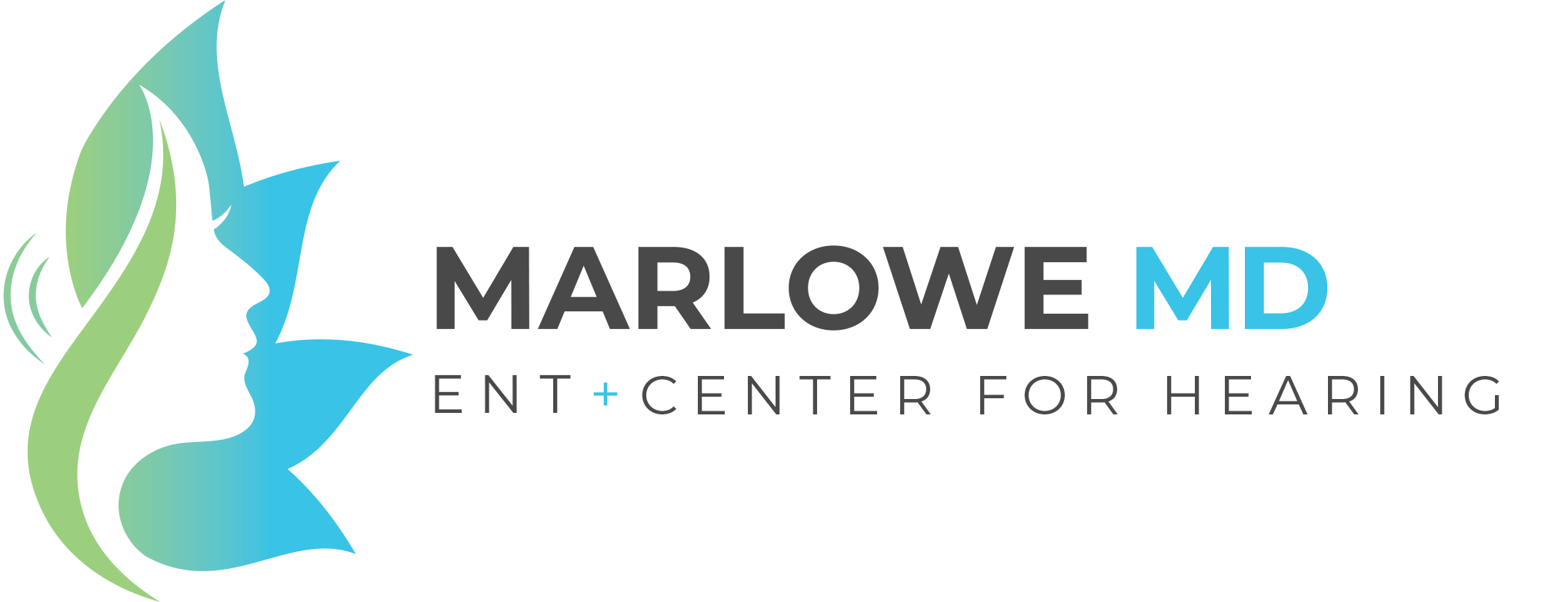Marlowe MD Sarasota ENT treats sinus infections and sinusitis. A bad cold is often mistaken for a sinus infection, but many symptoms are the same, including headache or facial pain, runny nose and nasal congestion. Unlike a cold, sinus infection symptoms may be caused by bacterial infections. It often requires treatment with antibiotics.
If you think you have a sinus infection, see your physician for proper diagnosis. In most cases, treatment is easy. By stopping a sinus infection early, you avoid later symptoms and complications.
Sinusitis is an inflammation of the sinuses. It is often caused by bacterial (germ) infection. Sometimes, viruses and fungi (molds) cause the condition. People with weak immune systems are more likely to develop bacterial or fungal sinus infection. Some people with allergies can have “allergic fungal sinus infection.” A typical acute sinus infection lasts three to eight weeks, so a sinus infection lasting longer than eight weeks is considered chronic.
Symptoms of a Sinus Infection
If you notice any of the following symptoms, we urge you to contact our Sarasota center for a comprehensive evaluation and diagnosis. Addressing sinusitis early on can lead to a speedy recovery.
Common symptoms of sinus infections include:
- Postnasal drip
- Discolored nasal discharge (greenish in color)
- Nasal stuffiness or congestion
- Tenderness of the face (particularly under the eyes or at the bridge of the nose)
- Frontal headaches
- Pain in the teeth
- Coughing
- Fever
- Fatigue
- Bad breath
Diagnosing Sinusitis
At Marlowe MD ENT you will receive a detailed diagnosis. The diagnosis depends on symptoms and requires an examination of the throat, nose and sinuses.
If your sinus infection lasts longer than eight weeks, or if standard antibiotic treatment is not working, a sinus CT scan, which we have in our office, may help us diagnose the problem. The exam uses a long, thin, flexible tube with a tiny camera and a light at one end that is inserted through the nose. It is not at all painful.

If your sinus infection is chronic or has not improved after several rounds of antibiotics, a mucus culture may help to determine what is causing the infection. Most mucus samples are taken from the nose, however, it is sometimes necessary to get mucus (or pus) directly from the sinuses.
Knowing what kind of bacteria is causing the infection can lead to more effective antibiotic therapy. A fungus could also cause your sinus infection, so confirming the presence of fungus is important. Fungal sinus infection needs to be treated with antifungal agents, rather than antibiotics. In addition, some forms of fungal sinus infection & allergic fungal sinus infection, for example, and do not respond to antifungal agents and often require the use of oral steroids.
Treating Sinus Infections
Effective treatments are available at our ear, nose & throat office located in Sarasota. Usually taken from 3 to 28 days, antibiotics are standard treatments for bacterial cases. Because the sinuses are deep-seated in the bones, and blood supply is limited, longer treatments may be prescribed for people with longer lasting or severe cases.
Overuse and abuse of antibiotics have been causing a major increase in antibiotic resistance. Therefore, patients with sinus symptoms should consider taking an antibiotic only if symptoms (including discolored nasal discharge) persist beyond 7-10 days.
Antibiotics help eliminate a sinus infection by attacking the bacteria that cause it, but until the drugs take effect, they do not do much to alleviate symptoms. Some over-the-counter medications can help provide relief.
Topical nasal decongestants can be helpful if used for no more than three to four days. These medications shrink swollen nasal passages, facilitating the flow of drainage from the sinuses. Overuse of topical nasal decongestants can result in a dependent condition in which the nasal passages swell shut, called rebound phenomenon.
Antihistamines block inflammation caused by an allergic reaction, so they can help to fight symptoms of allergies that can lead to swollen nasal and sinus passages.
Over-the-counter combination drugs should be used with caution. Some of these drugs contain drying agents that can thicken mucus. Only use them when prescribed by your allergist.
Prescription nasal sprays can prevent and reverse inflammation and swelling in the nasal passages and sinus openings, addressing the biggest problem associated with sinus infection. Topical nasal corticosteroid sprays are also effective in shrinking and preventing the return of nasal polyps. These sprays at the normal dose are not absorbed into the bloodstream and could be used over long periods of time without developing an “addiction.”
Nasal rinses can help clear thickened secretions from the nasal passages.
If drug therapies have failed, surgery may be recommended as a last resort. This can be performed by one of our doctors. Anatomical defects are the most common target of surgery.
Our surgeons can fix defects in the bone separating the nasal passages, remove nasal polyps and open up closed passages. Sinus surgery is performed under either local or general anesthesia, and patients often can go home on the same day.
Sinus Infection Treatments In Sarasota, Florida
Suffering from a sinus infection can be debilitating. At Marlowe, MD Ear, Nose & Throat, our dedicated staff of ENT experts is here to provide you with the diagnosis, treatment, and support you need to live a happy, healthy life. To learn more about our treatment options, make an appointment by calling (941) 379-3277 or selecting and filling out the appropriate form below.

